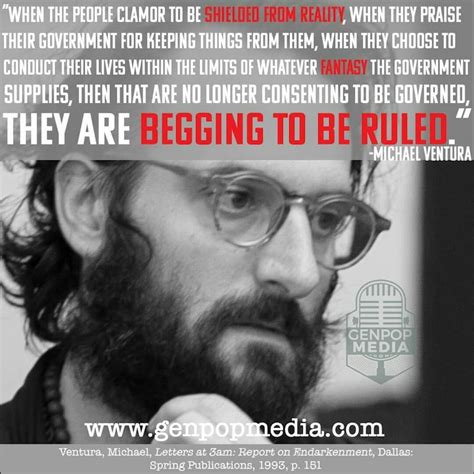A Quote by Steven Pinker
There has to be innate circuitry that does the learning, that creates the culture, that acquires the culture, and that responds to socialization.
Related Quotes
Since the 1960s, mainstream media has searched out and co-opted the most authentic things it could find in youth culture, whether that was psychedelic culture, anti-war culture, blue jeans culture. Eventually heavy metal culture, rap culture, electronica - they'll look for it and then market it back to kids at the mall.
Many teachers of the Sixties generation said "We will steal your children", and they did. A significant part of America has converted to the ideas of the 1960s - hedonism, self-indulgence and consumerism. For half of all Americans today, the Woodstock culture of the Sixties is the culture they grew up with - their traditional culture. For them, Judeo-Christian culture is outside the mainstream now. The counter-culture has become the dominant culture, and the former culture a dissident culture - something that is far out, and 'extreme'.
A free culture supports and protects creators and innovators. It does this directly by granting intellectual property rights. But it does so indirectly by limiting the reach of those rights, to guarantee that follow-on creators and innovators remain as free as possible from the control of the past. A free culture is not a culture without property, just as a free market is not a market in which everything is free. The opposite of a free culture is a "permission culture" -- a culture in which creators get to create only with the permission of the powerful, or of creators from the past.
Where it is the majority religion, Islam does not recognize religious freedom, at least not as we understand it. Islam is a different culture. This doesn't mean that it's an inferior culture, but it is a culture that has yet to connect with the positive sides of our modern Western culture: religious freedom, human rights and equal rights for women.
Creativity is an innate function in a human being, as we see in tribal peoples, who spent their considerable leisure time making religious artifacts and sacred art. That is what I would call a direct culture, in that everybody in it is directly in touch with all the elements, both of the culture and of the environment.





































